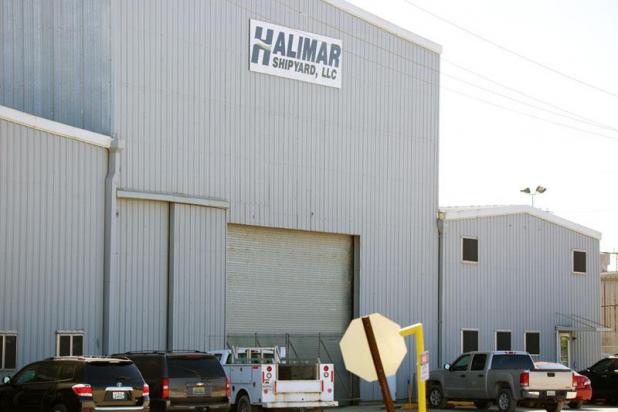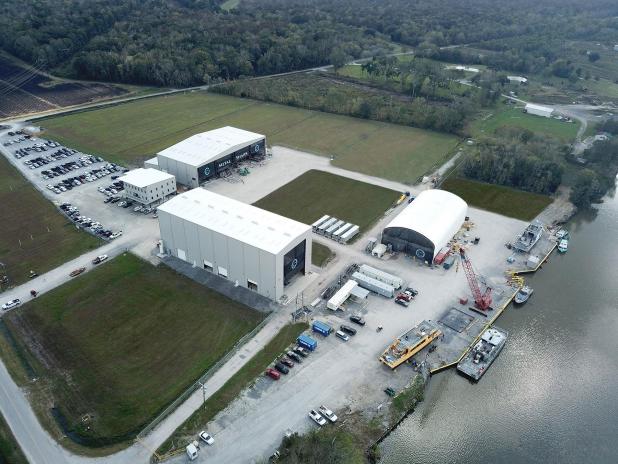
St. Mary shipbuilders like Halimar Shipyard in Morgan City, above, and Metal Shark in Franklin may find themselves paying more for steel after President Donald Trump's decision to impose tariffs on steel and aluminum imports.

Shipbuilding, LNG may feel sting from steel tariffs
President Donald Trump is enacting tariffs on imported steel and aluminum, a move described as a way to revitalize American manufacturing sectors that have been hammered by imports.
But not everyone is optimistic about the impact the new trade barriers will have on two important Louisiana industries, shipbuilding and the export of liquefied natural gas.
U.S. Rep. Clay Higgins, R-Port Barre, represents south Louisiana from St. Mary east to the Texas border. So his 3rd District contains both those industries.
In a statement, Higgins said he had written to the president to register his concerns about the tariffs’ effects on the burgeoning LNG export industry.
“I agree with President Trump that we should promote trade policies that place Americans first,” Higgins said in his statement. “However, we must also consider the American industries that rely upon imported steel. We have major industrial growth in South Louisiana from the LNG industry that requires specialty steels, which aren’t available domestically. They have no option but to import those materials in order to complete project construction.”
LNG is a major engine in an economic renaissance in southwest Louisiana. Ten LNG export operations, all within an easy drive of Lake Charles, are either in planning, under construction or in operations.
Estimates of the Lake Charles-area investment in LNG range from about $90 billion to more than $120 billion.
January unemployment in the Lake Charles metropolitan statistical area was 3.6 percent, the lowest among Louisiana’s metro regions.
“A new tariff, or tax, on imported steel would increase the costs of production and alter the economic benefit model for every one of the ongoing and announced projects in our state,” Higgins said. “I am hopeful the President will take the economic impact of this industry into account as he considers changes in trade policy.”
Another important industry with potential exposure to negative effects is shipbuilding, one of the pillars of St. Mary’s economy for decades.
Shipbuilders have taken their hits like other St. Mary industries since crude oil prices began to slump 3-1/2 years ago. But the industry still employs more than 800 people in St. Mary. About 5,600 people work in the industry statewide.
The fear here is that the tariffs, which would tack 25 percent on the cost of imported steel and 10 percent on aluminum processed overseas, will jack up the price of the major component in shipbuilding.
“Personally, to get a level playing field is great,” said Bill Hidalgo, owner and managing member of Halimar Shipyard LLC on Railroad Avenue in Morgan City. “My concern is that as soon as the tariff was an-nounced, the domestic steel producers said they were going to raise their prices.”
Domestic steel prices had already been on the rise. Steel that cost 32 cents a pound by November rose by 14 cents, Hidalgo said.
Now the expectation is that domestic producers will raise their prices another 5 cents in response to the tariffs. If that happens soon, the price of American steel will have increased by nearly 60 percent in six months.
Bloomberg Markets reported Sunday that the price of domestic steel has gone up 24 percent since 2018 began.
Hidalgo said he isn’t op-posed to the tariffs by them-selves. “If it’s a negotiating tool, fine,” he said.
But “if you raise the price of domestic steel, all that does is raise the price of whatever you’re buying. … The idea behind this is to assist fabricators, to help them hire more people.”
